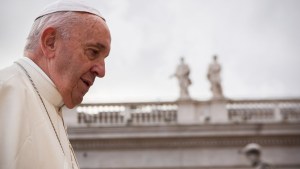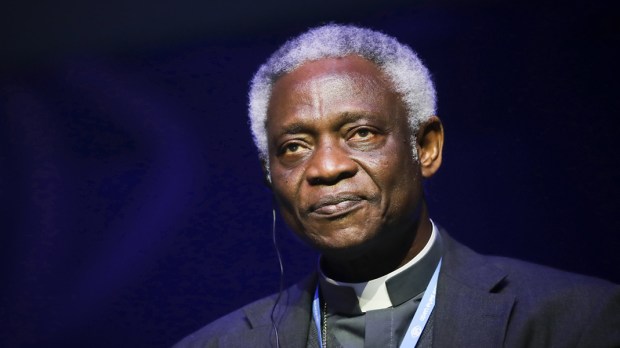Racism “goes against the foundation of our conception of the human person,” said Cardinal Peter Turkson, prefect of the Dicastery for Promoting Integral Human Development, in an interview with Vatican News on June 3. Reacting to the violent protests that have struck the United States since the tragic death of George Floyd in Minneapolis on May 25, he called not only for non-violent civil action, but also for forgiveness.
George Floyd, an African-American who died due to brutal actions by police who were arresting him, has become a new symbol of a protest movement against racism in the USA and around the world. Since his death, the United States has experienced a “spontaneous explosion of anger and strong feelings” among its citizens, Cardinal Turkson said, which has led to protests during which some people have engaged in violence, looting, vandalism, and arson.
Referring to pastor and activist Martin Luther King Jr. (1929-1968) as an example, the prefect of the dicastery stressed that he could not but share the idea of a call for non-violent civil action to protest against racism, which “goes against the foundation of our conception of the human person.” He nevertheless wished to add “a call for forgiveness,” which he felt was the only way to honour the memory of George Floyd.
A moment of inter-religious and ecumenical prayer
The Ghanan cardinal said he understands “the justified frustration of millions of brothers and sisters who, even today, live in humiliation… and inequality of opportunity simply because of the color of their skin.” The current situation stems from a social phenomenon that “is not limited to the United States,” he said, citing the Apartheid practiced in South Africa, the caste system in some countries, and the persecution of Aborigines in Australia.
To fight against these structural inequalities, Cardinal Turkson considers it necessary to go to the roots of the evil and “re-educate in the sense of humanity, in the sense of what the human family means.”
He invited the bishops and various American religious representatives to unite in an ecumenical and interreligious event to bear witness to this fraternity in a moment of common reflection. “As the Catholic Church, this is what we can do: pray for George,” he said.

Read more:
Pope speaks out on George Floyd

